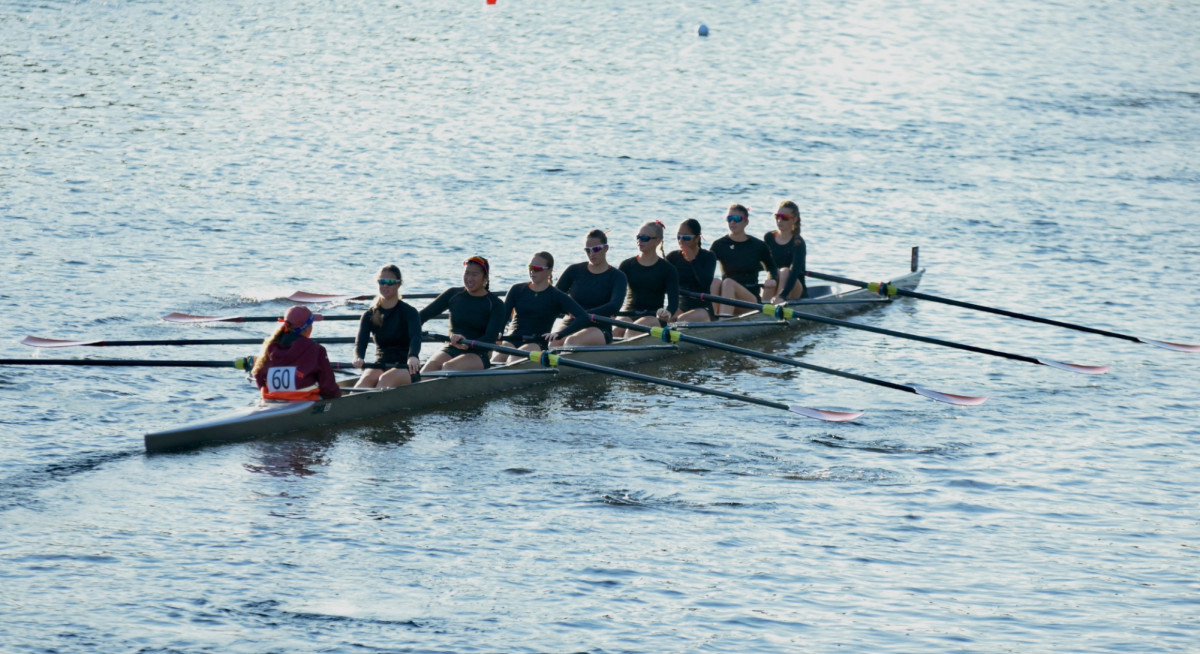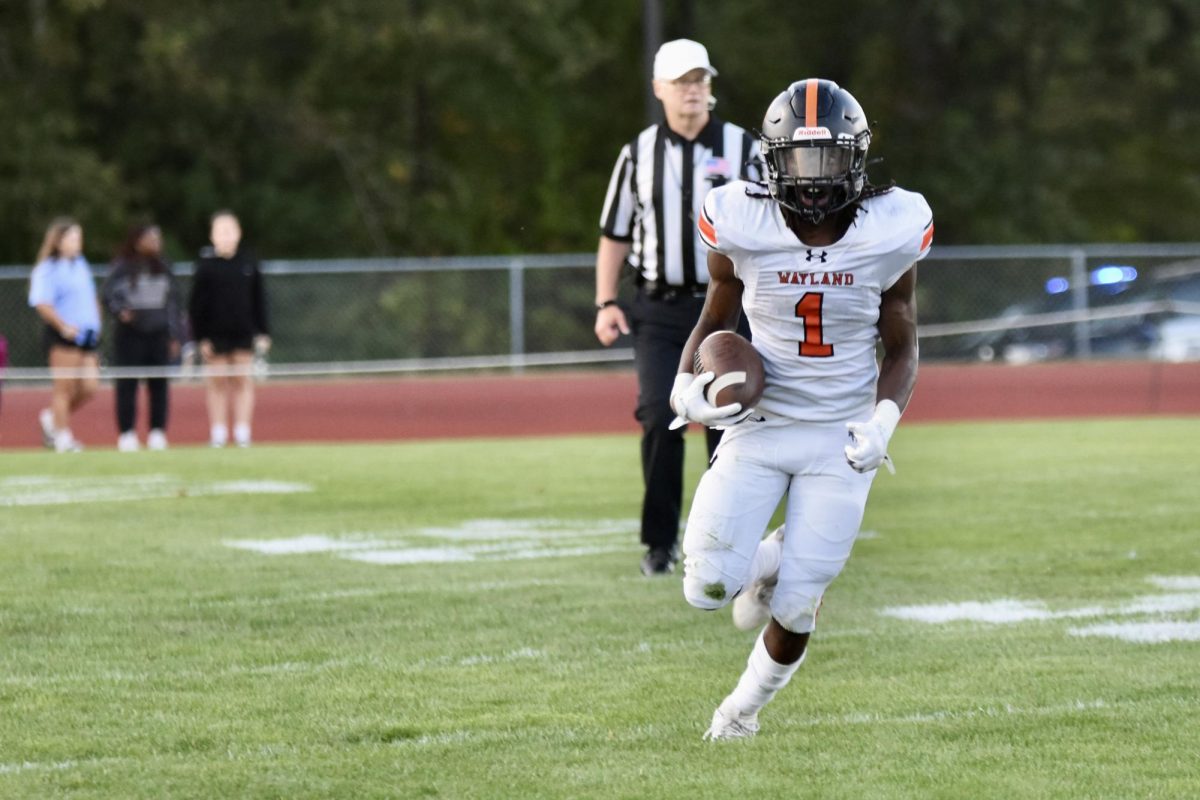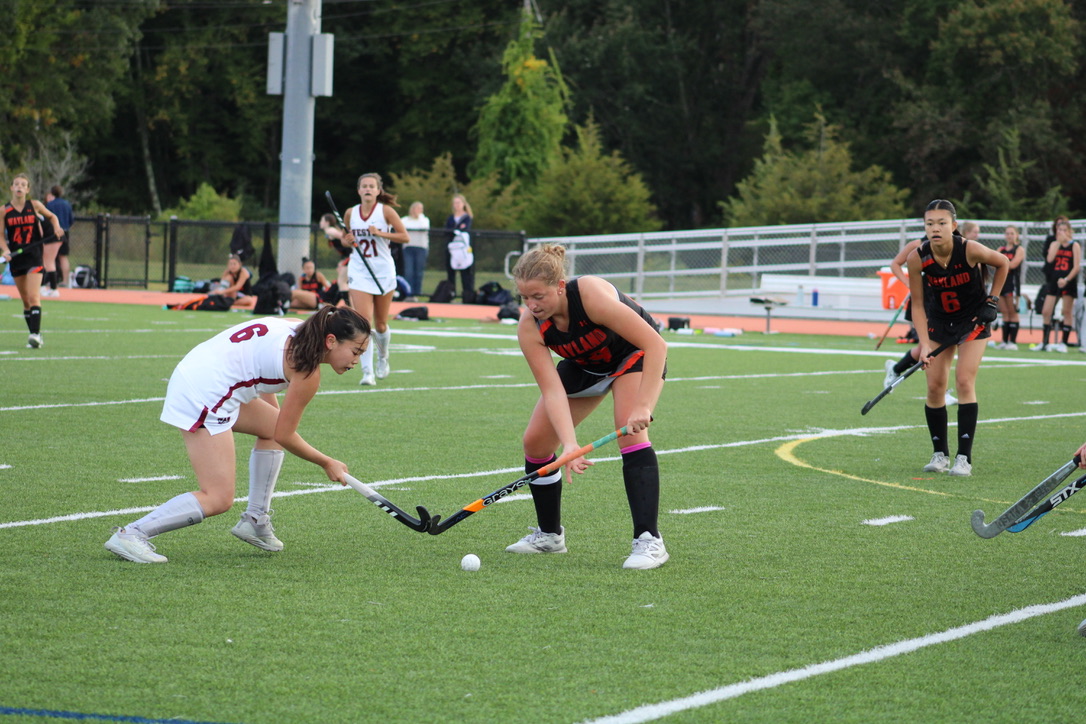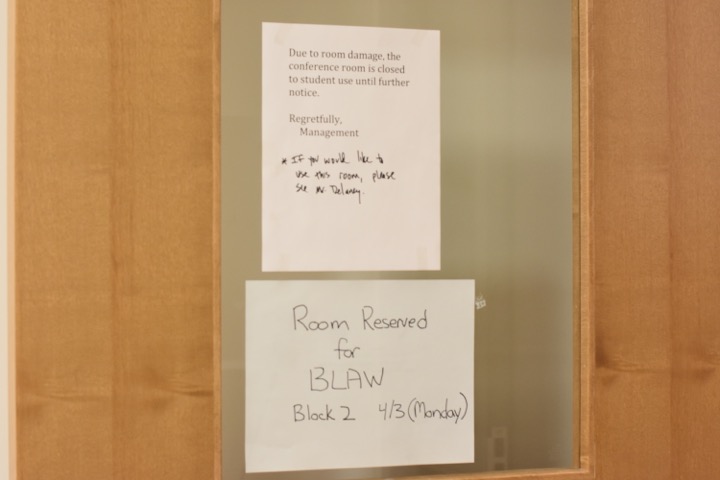History department restricts conference room access
Credit: Joyce Wu
A recently added sign on the History Department conference room. The room is still open for students to use, but due to a recent accident, it is now required for students to check in with Mr. Delaney before using it. “We just need to recenter things for a while and then we can go back to our open door policy,” Delaney said.
April 5, 2017
The open door policy in the history wing conference room is no longer in place due to damage to one of the room’s chairs. Before the incident, students were able to work quietly in the conference room without permission, but now, students must check in with department head Kevin Delaney for access.
A sign appeared on the conference room door last week declaring that using the room without permission was no longer allowed.
“We have an open conference room policy that has worked pretty well. When it’s not being used by teachers, it’s been open for kids to come in and work quietly, cooperatively, and constructively, and it worked [really well],” Delaney said. “But, the other day, a couple of the teachers who regularly eat lunch here have been noticing that it’s just been left in increasingly worse conditions over the past couple of weeks. We noticed that one of the armchairs was noticeably broken, so we just decided that maybe it was time to keep closer tabs on the students using this room. ”
After this incident occurred, Delaney and the other history teachers decided to halt the open door policy. Delaney belives the broken chair was merely a result of students making an honest mistake.
“These types of things just happen in high school all the time, especially in a high school like ours where the students have a lot of liberty,” Delaney said. “Sometimes, that certain amount of energy adds up to unconstructive behavior.”
The conference room is still available for students to work in, but is under stricter supervision for now.
“If you and your friends wanted a quiet place to work, you could walk by and say, ‘Hey, no one is in here. Do you mind [if we use the room]?’” Delaney said. “I’ll probably say ‘sure,’ but the standard is that sometimes teachers use this room for conferences and the students would just have to excuse themselves when it’s being used.”
This rule is not permanent; rather, it is temporary until history teachers can reevaluate the situation.
“We like the idea of giving [students] freedom and choices, but sometimes that means mistakes are made and this is kind of the old fashioned way of dealing with teenagers who [make] mistakes,” Delaney said. “After this, we’ll move on, put this behind us and go back to the way things once were.”

























